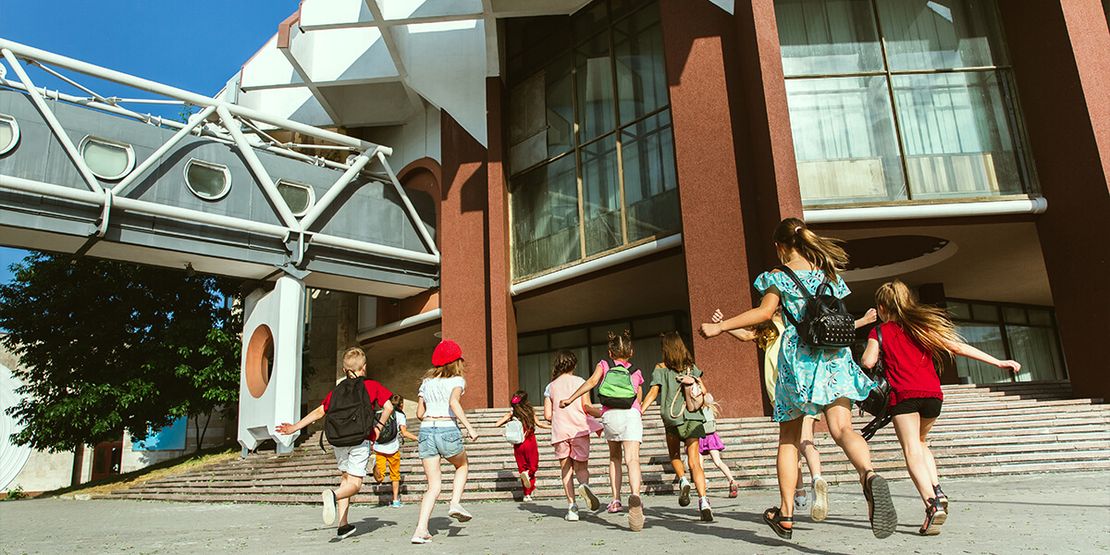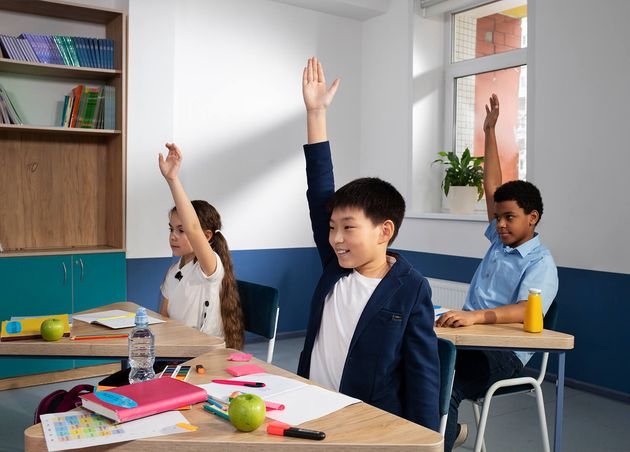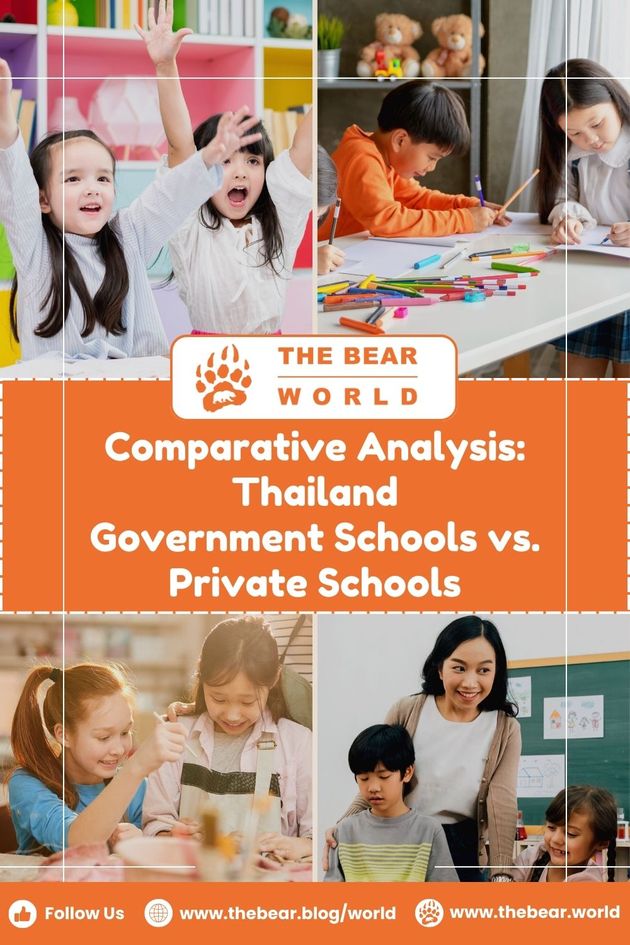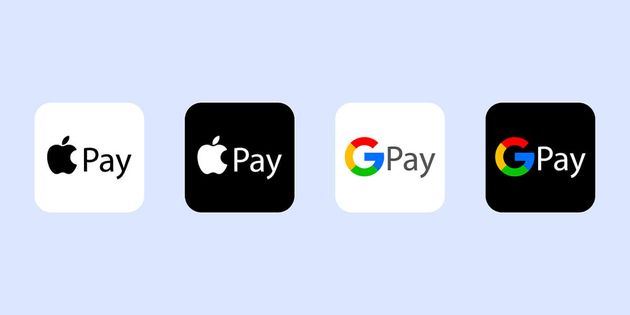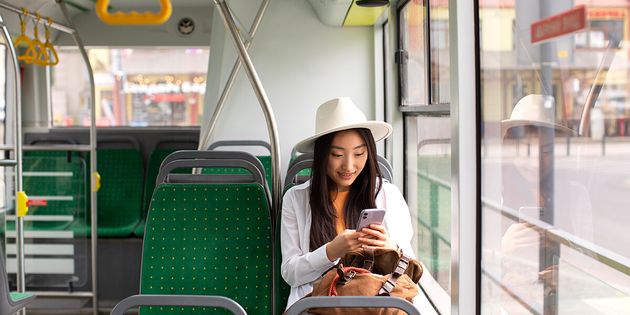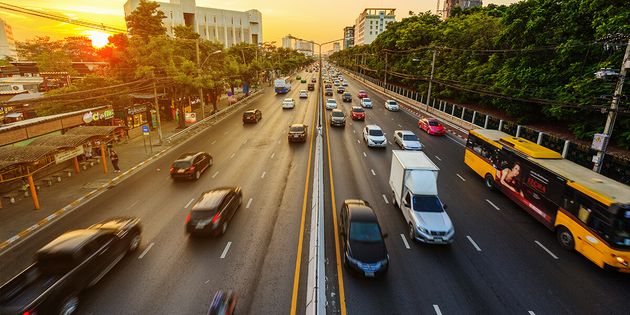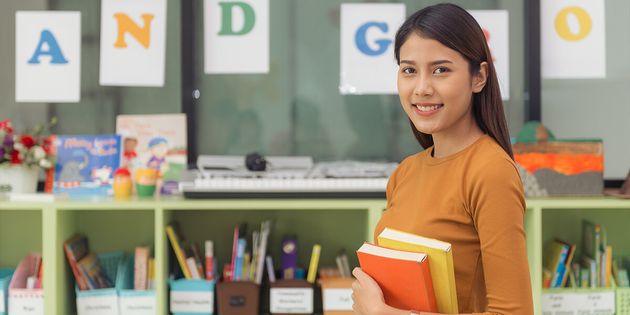Comparative Analysis: Thailand Government Schools vs. Private Schools
The education system of Thailand is dynamic and ever-changing, with a wide range of public and private schools serving different demographics. The Ministry of Education mostly oversees the Thai education system. It promotes lifelong learning by strongly emphasizing skill development and teaching socially responsible values.
Every family in Thailand has access to various educational courses for their children. It ranges from government schools prioritizing standardized learning to private schools providing it. It offers more individual-centric and foreign curricula. Let's compare Thailand's government and private schools in detail, highlighting the advantages, disadvantages, and contributions to the country's educational system.
🚀 Expat Fact!
The Thai curriculum needs to be updated regularly. The current Thai curriculum was compiled in 2009.
Government Schools in Thailand
Thai government schools, often known as public or state schools, are the main education source for most Thai students. The Office of the Basic Education Commission (OBEC) established the national curriculum that these schools adhere to. They are run and financed by the Ministry of Education. Thailand's government school history began in 1882 when King Chulalongkorn instituted a modern educational system that opened the door for creating state schools. Government schools now serve students in every province and range in difficulty from elementary to secondary.
Curriculum and Educational Standards
Thailand's government schools adhere to a national curriculum established by the OBEC. There are three levels to the curriculum: lower secondary (grades 7-9), upper secondary (grades 10–12), and elementary (grades 1-6). It focuses on major subjects such as science, math, social studies, Thai language, moral and religious education, and physical education. The curriculum also covers vocational subjects for those pursuing technical or vocational careers.
Teaching Methodology
Conventional instructional strategies, such as lectures and knowledge memorization, are often used in government schools. Nonetheless, in recent years, initiatives have included more student-centered strategies, including project-based learning and group projects.
Extracurricular Activities
Sports, music, and the arts are just a few extracurricular activities that Thai government schools provide. Along with giving children a well-rounded education, these activities also help them grow in their hobbies and social skills.
Access and Demographics
A varied student body is served by government schools, which are open to all Thai nationals. Nonetheless, differences in schooling persist according to geographic location and social standing. Students from rural regions often need more resources and possibilities than their urban counterparts.
Infrastructure and Resources
In Thailand, there are differences between government schools regarding infrastructure and resources; generally speaking, metropolitan schools have better facilities than rural ones. Nonetheless, the Thai government has worked to enhance the facilities and supplies in the nation's government schools.
Assessment and Evaluation
Students at government schools complete national tests after each level as part of a standardized assessment and evaluation system. These tests establish a student's eligibility for vocational training or postsecondary education.
Strength and Challenges of Thai Government Schools
The broad reach and accessibility of Thailand's government schools are its key advantages. Government schools in Thailand provide free education to everyone since the Ministry of Education finances them. They are trying to make it an inexpensive choice for families from all socioeconomic levels. Additionally, a standardized curriculum is followed in government schools to provide stability and uniformity in education throughout the country.
Government schools are widely available in Thailand. However, they also confront many difficulties. Overcrowding is a major problem, with some classes holding as many as fifty children. This may have a detrimental effect on educational standards and impede personal growth. Furthermore, particularly in rural regions, government schools sometimes need more facilities and resources to provide equitable educational opportunities for all pupils.
Private Schools in Thailand
In Thailand, private education has a long history. King Rama IV founded the country's first private school in 1852. But then, the general public could not attend private schools; instead, only upper-class members could. Private education became more readily available to all socioeconomic strata in the 1960s and 1970s.
Most families looking for alternatives to government schools often choose private schools. To meet their pupils' varied needs and interests, they provide a range of curricular options and instructional strategies. Private schools often have lower class numbers and more resources than public schools.
Curriculum and Educational Standards
The national curriculum established by the Thai Ministry of Education is mandatory for private schools operating in Thailand. However, they have more freedom in selecting their instructional strategies and resources. Academic achievement is also held to different criteria at private schools, which might change based on the philosophies and methods of the institution.
Types of Private Schools in Thailand
There are various types of private schools in Thailand. Here is the detail of these schools:
- International Schools
- These schools serve mostly foreign families residing in Thailand, while many local families also choose this.
- They've been following an international curriculum, such as the International Baccalaureate.
- These institutions often include a multicultural student body with members of many nations.
- Bilingual Schools
- Bilingual schools teach Thai and English as a link between domestic and foreign educational systems.
- These institutions aim to graduate students who speak two languages with ease.
- Religious Schools
- These private schools provide instruction by a certain religion, such as Islam, Buddhism, or Christianity.
- They follow a regular academic curriculum in addition to including religious instruction.
- Montessori Schools
- These establishments adhere to the educational philosophy of Maria Montessori, which emphasizes freedom, creativity, and critical thinking in addition to child-led learning.
- Special Education Schools
- These private schools provide specialized instruction and support systems to meet the requirements of kids with disabilities and special educational needs.
- Boarding Schools
- These educational institutions provide students with a residential setting that includes food, lodging, and instruction.
- Families that want to provide their children with a structured academic atmosphere or those who live in rural places may find them the perfect option.
Access and Demographics
Most Thai kids attending private schools are from middle-class or upper-class backgrounds. Still, initiatives are underway to make low-income families more accessible via financial assistance and scholarship programs. Furthermore, there has been an increase in the number of foreign students attending private institutions, especially in secondary and university settings.
Infrastructure and Resources
Generally, private schools in Thailand provide more resources and infrastructure than government schools. This offers many extracurricular activities and programs, cutting-edge technology, and contemporary facilities. However, private schools may face severe financial hardships due to the upkeep of these amenities.
Strengths and Challenges of Thai Private Schools
Private schools are well-known for their high academic standards and demanding educational programs. They also allow and give opportunities to every student to participate in extracurricular activities, including music, art, and athletics. Furthermore, private schools often offer superior resources and facilities than public schools, enabling a more thorough educational experience.
Private school tuition fees are one of the biggest drawbacks. Low-income families struggle to pay the sometimes much higher private school tuition than government institutions. This may make it more difficult for certain pupils to get a high-quality education and increase educational inequality. To assist in addressing this problem, a lot of private schools provide financial aid and scholarship opportunities.
🚀 Expat Trivia!
There are floating school boats in Thailand. These distinctive schools are usually located in isolated locations and are evidence of Thailand's dedication to educating everyone, regardless of location.
Deep Comparison of Government and Private Schools in Thailand
A comparative analysis of the schooling system in Thailand is necessary to comprehend the influence and relevance of both government and private schools in Thailand. This will enable us to place the characteristics and difficulties of the educational system within the larger framework of Thailand's educational system. Here are some important things to think about:
Differences in Curriculum and Teaching Styles
The curriculum is one of Thailand's main distinctions between government and private schools. Private schools have more freedom in selecting their instructional strategies and resources, even if both kinds of schools adhere to the national curriculum. This enables them to implement various strategies and initiatives that complement their educational philosophies.
Additionally, class sizes at private schools are often lower, providing more individualized attention and customized teaching strategies. Students may benefit from a more thorough and customized educational experience.
Differences in Faculty Qualifications and Teaching Methods
Private schools in Thailand often have greater criteria for teacher credentials than government schools. They could demand more degrees or certificates from instructors, particularly when teaching topics like English and other foreign languages.
Cost Comparison
The cost is one of Thailand's biggest distinctions between government and private schools. Because private schools have better resources and facilities, their fees are often greater. Government schools, meanwhile, are either completely free or charge very little.
Due to the cost disparity, private education may be difficult for low-income families to purchase, resulting in educational inequality and fewer prospects for social mobility.
Comparison in Educational Outcomes and Opportunities
Academic results from private schools in Thailand are generally greater; graduates are more likely to attend university and score higher on standardized exams. Furthermore, private schools might provide a greater variety of extracurricular activities and programs, giving pupils greater chances for personal development.
Still, most Thai children get their education mostly from government institutions. Government schools nonetheless create many talented and distinguished people, even if they do not have the same chances and resources as private schools.
Differences in Discipline and Rules
Private schools have more strict rules and discipline than public schools. This might include curfews, clothing restrictions, and penalties for breaching the rules. Although this could result in a more controlled learning atmosphere, kids might feel less free.
Government schools sometimes have relaxed rules and regulations on behavior, which promotes independence but may also result in behavioral problems.
The government and private schools play important roles in the overall design of Thailand's educational system. Each contributes special talents and encounters different difficulties, creating a complex web of varied educational experiences. Though their costs, curricula, and methods of instruction vary.
Every institution is crucial in molding the destiny of young Thai people. Government schools remain the foundation of accessibility and broad-based learning, even if private schools often act as centers of innovation and cutting-edge resources.
Ultimately, the issue is not about which of these two intricate educational systems is better; rather, it is about how they might complement one another and help all Thai children get a more thorough, inclusive, and rewarding education.
Lifestyle Bear
More From The Bear World
Bangkok Public Transport Guide: Everything You Need to Know
Lifestyle Bear


